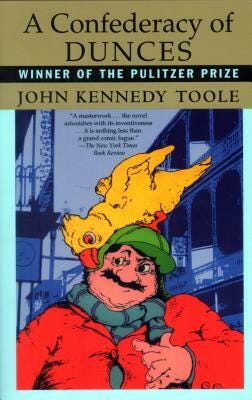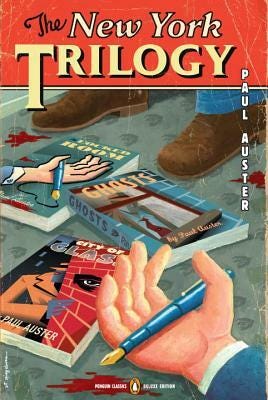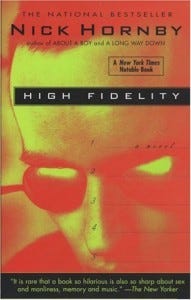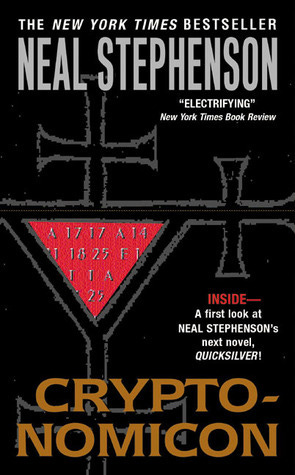For whatever reason, YouTube has suddenly started recommending videos to me by content creators talking about books. I’m told this is referred to as #BookTube, similar to a Tik Tok version called #BookTok, and this entire sentence makes me exhausted. But in some of those videos, people are going over their favorite list of a genre, or an author, etc. — and it made me think about what MY personal favorite books of all time would be.
Like a lot of book dorks, I have kept a record of almost every book I’ve read - largely on Goodreads, but of late on TheStoryGraph. And one tag I’ve put on some selected books is noting what my all-time favorites are. But I have over 50 of them, which defeats the purpose of this list. So, I’ve whittled that down.
On that list of 50+, there are multiple titles by some of my favorite authors like Paul Auster, Haruki Murakami, John Irving and Jess Walter.
Here are the runners-up:
James, Percival Everett
Lonesome Dove, Larry McMurtry
Say Nothing: A True Story of Murder and Memory in Northern Ireland, Patrick McFadden
The Art of Racing in the Rain, Garth Stein
The Financial Lives of the Poets, Jess Walter
The Amazing Adventures of Kavalier & Clay, Michael Chabon
Blindness, Jose Saramago
The Fifties, David Halberstam
Continental Drift, Russell Banks
A Prayer For Owen Meany, John Irving
The Princess Bride, William Goldman
That’s in no particular order (it’s actually in reverse order of when I’ve read these titles, from most recently to oldest), and they’re all so fantastic you should read them all. But they didn’t quite make the list. Here’s what did:
My Favorite Books Of All Time
A Confederacy of Dunces, by John Kennedy Toole. As the winner of the Pulitzer Prize, I’m not alone in loving this absurd tale of Ignatius J. Reilly, an obese man about town living in New Orleans living a comic life with one adventure after another. I remember laughing out loud multiple times reading this - not a common occurrence - and wishing there was even more to the story. The book was published after Toole’s death and it’s the only book he wrote, which is a shame. This is also a title that has been in development hell in terms of making it into a movie, to the extent that it will likely never happen. It’s a book that based on reviews isn’t for everyone, but it’s one of my all-time favorites.
The Stand, by Stephen King. Not everything on this list is going to be highbrow literature, but don’t think this is just a casual horror novel. A massive epic, The Stand tells the story of the aftermath of a global plague (with mysterious and surreal aspects, of course) and resolves as literally a battle of good and evil. If it wasn’t over 800 pages, I’d read it again in a heartbeat. King is always a page-turner but this book among all others had me absolutely riveted from start to finish.
The New York Trilogy, by Paul Auster. This book literally changed how I thought about reading and writing. I picked it up on a beach vacation with my family - my mother had brought it, and I’d run out of things to read. It was unlike anything I’d ever read - three novellas, loosely connected, that are all mysteries but so much more. Existential stories about much more than the mystery at hand, I was absolutely floored by what I’d read and basically bought everything Auster wrote after this until his recent death. The man was a true master.
High Fidelity, by Nick Hornby. One of the more popular titles on this list, I bought it shortly after it was published and have read most everything Hornby has written since. Known perhaps as much for the John Cusack film of the same name, this book was funny, sad, insightful and tapped into the uneasiness and anxieties of being old enough to be on your own but maybe not quite ready to be a full-fledged adult. It’s so, so good.
Infinite Jest, by David Foster Wallace. I started this book two times and stopped before finally clicking with it on the third attempt. It’s a LOT of work, but it’s truly brilliant - a story so complex I struggled to even say what it’s about - so I’ll just copy what the StoryGraph says:
A gargantuan, mind-altering comedy about the Pursuit of Happiness in America set in an addicts' halfway house and a tennis academy, and featuring the most endearingly screwed-up family to come along in recent fiction, Infinite Jest explores essential questions about what entertainment is and why it has come to so dominate our lives; about how our desire for entertainment affects our need to connect with other people; and about what the pleasures we choose say about who we are.
It’s not just the story, but the story-telling - there are literally a few hundred pages of footnotes that are absolutely critical to the story, there are so many characters that intertwine in surprising ways, and so forth. Foster Wallace was quite literally a genius and many times when I was reading this I’d just pause to try and figure out how some of these ideas even percolated in his mind, let alone get translated into such beautiful prose. It’s as much work as any book I’ve ever read, but worth it completely.
Kafka on the Shore, by Haruki Murakami. This is another book, provided by my mother (who had mistakenly bought two copies) that changed me as a reader. I know that Murakami is both incredibly popular and divisive, and doesn’t always write women in a fully developed way … but this book blew my mind. It led to me reading his other masterworks like The Wind-Up Bird Chronicle, Norwegian Wood, Hard-Boiled Wonderland and the End of the World and, well, everything else he’s ever published. As much as anything, this novel is a great encapsulation of so many Murakami themes - confused young men, talking cats (yes, you read that right), mystical shadow worlds, etc. People often say that Murakami’s popularity is because he’s a Japanese writer who writes like an American, but I don’t know any American novelists who write like him.
The Road, by Cormac McCarthy. It’s hard to recognize that there’s a darker novel here than The Stand, but The Road takes the honor here. Also a post-apocalyptic dystopia, The Road follows a father and son trying to survive the horror of their reality. This book broke me, especially in one key scene I can’t talk about as a spoiler but also because, well, it broke me. I think that McCarthy’s true masterpiece is Blood Meridian, but I’ve yet to be able to finish that one. This one was an uncomfortable but quick read that is its own masterpiece.
Cryptonomicon, by Neal Stephenson. I don’t know what I thought this book was, but it wasn’t close to being what I expected. Weaving together a myriad of stories from World War 2 to the present, I thought about this book long after I finished it. Stephenson also wrote Snow Crash, a cyberpunk novel that I enjoyed but really isn’t my typical type of fare - and I think I stayed away from this novel thinking it was similar. It’s absolutely not, and one of the better stories I’ve ever read.
The Power Broker: Robert Moses and the Fall of New York, by Robert Caro. This is not only the best non-fiction book I’ve ever read but I don’t know anyone who hasn’t read it who wouldn’t argue the same. After living in New York for several years, I had no idea of how the city we know today was largely built - and how many ways it could have been different if it wasn’t for Robert Moses. This painstaking biography skips zero details, and is fascinating from start to finish. The podcast 99% Invisible did a year-long book club on this in 2024 that is worth as a partner to reading the book again (or, in lieu of doing that as it is over 1,200 pages long).
Angle of Repose, by Wallace Stegner. I saved this for last because when anyone ever asks me what my favorite book of all time is, this is the answer. A true sweeping epic of the history of not just one family but alongside it the development of the Western part of the United States. Told in the narrative of an aging man in the 1970s trying to capture the history of his family before he himself dies, it’s captivating and enthralling, and Stegner writes so beautifully that I found myself re-reading sentences just to enjoy the prose again. It’s a true masterwork, and one I can’t recommend highly enough.














Solid picks. Most wouldn't necessarily be mine, but there's POWER BROKER, and I'll add some to my too reading list.
Good list. Suprisingly I've read a few.